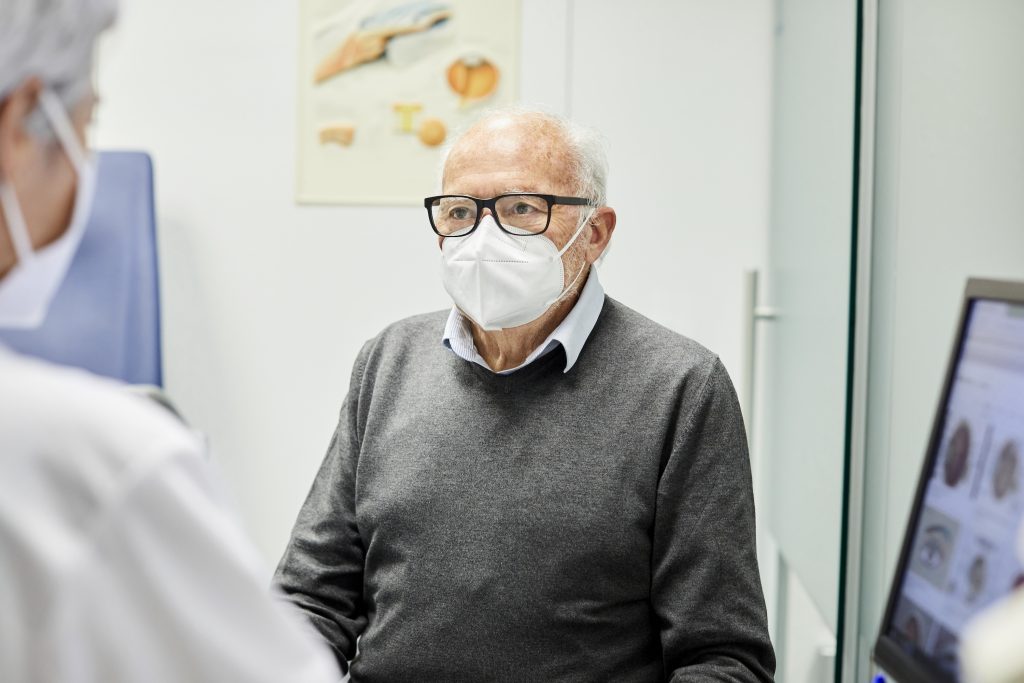According to the American Cancer Society®, approximately 1 in 8 men will be diagnosed with prostate cancer in their lifetime. Urologist Rodney L. Worthen, II, MD, discusses the causes, risk factors and early detection of prostate cancer.
Q. Who is at risk for being diagnosed with prostate cancer?
A. White and Black males are most at risk for prostate cancer, followed by Latino men and then Asian and Native American men.
Q. What are the causes or risk factors associated with prostate cancer?
A. The causes of prostate cancer are generally unknown. Men with family members who have a history of prostate cancer are at higher risk of developing the disease. Some people believe that organic herbicides and pesticides, such as Agent Orange, which was used during the Vietnam War, may be a cause.

Q. How is prostate cancer detected?
A. Detection is best made with an annual digital rectal exam and a prostate-specific antigen (PSA) test. The PSA is a simple blood test that takes just minutes and it can save lives. At my practice, we are finding too many advanced stage-three and -four cancers.
Q. How is prostate cancer treated?
A. It can be treated with surgery that removes part or all of the prostate. Radiation, hormone and proton therapy are also options. When appropriate, we also use the non-surgical, non-invasive CyberKnife® System. It is an advanced treatment that pinpoints tumors to accurately deliver the radiation to destroy the cancer.
Q. What is the best way to get tested/screened for prostate cancer and what age should screenings begin?
A. Men with no family history should begin screening at age 50. Those with a family history of prostate cancer should begin earlier at age 40. Annual rectal exams and PSA tests are the best way to get screened.
To learn more about the Cancer Center, visit stmarysregional.com/cancercenter

Physicians are on the medical staff of St. Mary’s Regional Medical Center, but, with limited exceptions, are independent practitioners who are not employees or agents of St. Mary’s Regional Medical Center. The hospital shall not be liable for actions or treatments provided by physicians. For language assistance, disability accommodations and the nondiscrimination notice, visit our website.






